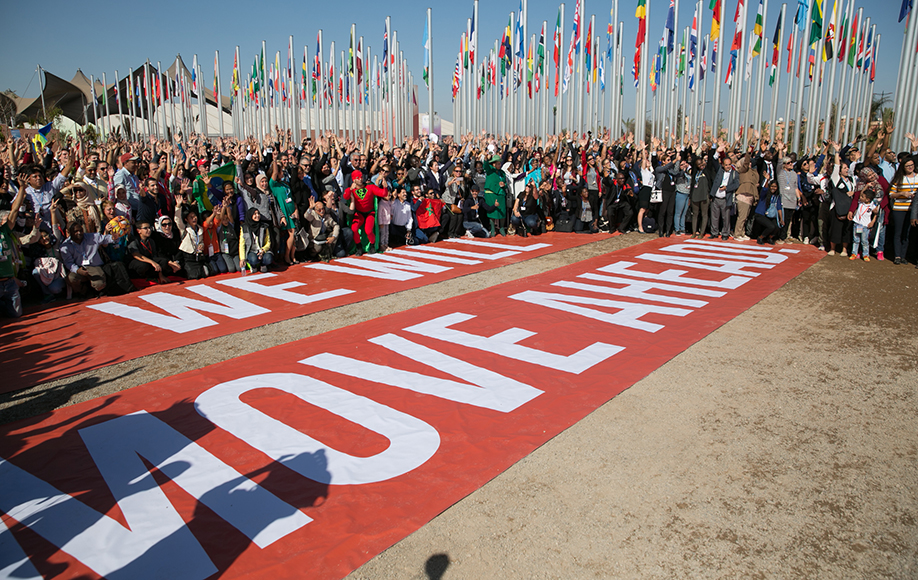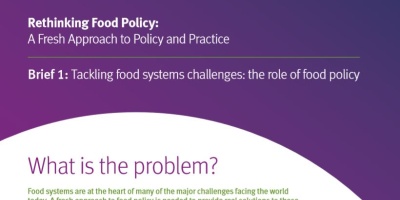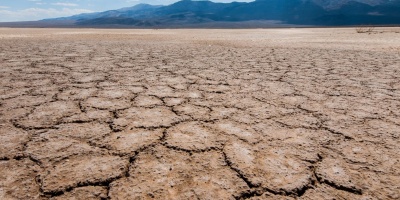In this piece, Sue Dibb introduces opportunities for food policy change in the UK.
FCRN member Sue Dibb is Executive Director of Eating Better, the UK civil society alliance of over 50 organisations working together to help people move towards eating less meat and dairy and more sustainable alternatives.

All the evidence points to the urgent need to transform the way in which we produce and consume meat and dairy if we are to tackle the enormous challenges we face. At stake is our ability to keep global temperature rise to less than 2oC, and to feed the world and its growing, more affluent population, healthily, fairly and sustainably. But policy responses to galvanise this necessary transition are woefully inadequate.
Between 6-17 November global leaders converge on Bonn for this year’s round of climate talks to enact the climate agreements made in Paris two years ago, which endeavour to keep the global temperature rise well below 2oC and preferably to no more than 1.5oC. It is clear to all those who study the research that it is not possible to meet this vital target unless the role of dietary change – to reduce consumption of meat and dairy in high consuming countries - is included within policy solutions. If meat and dairy consumption continues to rise at its current rate, greenhouse gases from food production will increase by 80% globally by 2050, meaning that unless demand is curtailed, livestock sector emissions will increase to the point where dangerous climate change is unavoidable. Yet apart from the voices of campaign groups from the sidelines, the main COP23 event will be silent on what is a cost effective, environmentally sustainable, health benefiting solution to climate change.
In the UK there is a similar silence and policy gap. This month saw the UK Government articulate its carbon reduction proposals in its report Clean Growth Strategy: Leading the Way to a Low Carbon Future. This sets out how every sector of the UK economy can contribute while highlighting the business opportunities. Except, once again; policy makers remain silent on the need to change diets, despite the business opportunities and public support this is already providing. Furthermore there is no acknowledgement of the Committee on Climate Change warning that we are currently off-track to meet even the relatively modest voluntary targets to reduce agricultural emissions by at least 3MtCO2e for England (and 4.5 MtCO2e for the UK) for which emissions from livestock production are a hotspot.
 The strategy does rightly recognise that food and farming policy can do more for the environment and climate change, citing better soil management, low-carbon fertiliser development and tree planting as solutions. And it promises that future agricultural support (currently worth £3bn) – once the UK leaves the EU and its Common Agriculture Policy - will need to deliver better environmental outcomes, including addressing climate change more directly. But it provides no real details of how this will be achieved in practice, except promising an Agriculture Bill for early 2018. And there is a limit to what can be achieved by tinkering with production systems whilst ignoring the need to reduce overall levels of meat and dairy consumption in high consuming countries such as the UK.
The strategy does rightly recognise that food and farming policy can do more for the environment and climate change, citing better soil management, low-carbon fertiliser development and tree planting as solutions. And it promises that future agricultural support (currently worth £3bn) – once the UK leaves the EU and its Common Agriculture Policy - will need to deliver better environmental outcomes, including addressing climate change more directly. But it provides no real details of how this will be achieved in practice, except promising an Agriculture Bill for early 2018. And there is a limit to what can be achieved by tinkering with production systems whilst ignoring the need to reduce overall levels of meat and dairy consumption in high consuming countries such as the UK.
Brexit is providing an opportunity for fresh policy thinking in the UK. In collaboration with its civil society alliance organisations, Eating Better is working to engage policy makers. Our Beyond the CAP report sets out a suite of ten policy recommendations for better meat and dairy production and consumption post Brexit, calling for:
- An integrated food and farming strategy to replace CAP which drives progress towards climate change goals for agriculture and supports public health and restoring biodiversity.
- A transition to healthy sustainable eating patterns with less and better meat and dairy with more plant-based eating.
- High standards and enforcement for environmental protection, food safety, antibiotic use in livestock farming and farm animal welfare.
- Public money for the provision of public goods such as wildlife, farm animal welfare, environmental and landscape benefits, including building healthy soils, enhanced biodiversity, flood alleviation and climate change mitigation.
- Sustainable levels of livestock production in line with the carrying capacity of land, climate change goals and environmental limits, the principles of sustainable diets and public expectations for high quality, high welfare, sustainably produced UK livestock products.
- Protection for high quality permanent grassland and carbon-rich soils that avoids overgrazing.
- Sustainably sourced animal feed to reduce the UK’s impact on climate change and biodiversity in other countries. Alternative feeds with lower impact should be developed, including consideration of heat-treated, safe, food waste for pigs and chickens.
- Clear and honest labelling including a mandatory method of production labelling for all livestock products.
- Economic support for sustainable livestock production systems including more extensive pasture-based, agro-ecological, organic, and mixed farming systems.
- Sufficient transition funding for innovation, research and training to support the practical and cultural shift needed.
 In addition to future domestic policies, the outcome of trade negotiations post Brexit will be crucial. They will determine the extent to which the UK’s markets in livestock products will be opened up to greater competition from abroad since currently EU trade agreements limit imports via tariffs. Eating Better and our alliance organisations fear that such trade negotiations could weaken and undermine UK environmental, health and animal welfare standards.
In addition to future domestic policies, the outcome of trade negotiations post Brexit will be crucial. They will determine the extent to which the UK’s markets in livestock products will be opened up to greater competition from abroad since currently EU trade agreements limit imports via tariffs. Eating Better and our alliance organisations fear that such trade negotiations could weaken and undermine UK environmental, health and animal welfare standards.
(Photo credit, Phillip Capper, Sark, Channel Islands, Flickr Creative commons license 2.0)
Earlier this summer an influential House of Lords Committee warned that cheap imported food after Brexit could threaten farm animal standards. The response from Government ministers highlighted divisions. Trade Secretary Liam Fox received criticism for dismissing concerns about chlorine-dipped chicken while Environment, Farming and Fisheries Secretary Michael Gove defended high standards, acknowledging that farm subsidies need to be better directed.
Whatever the outcomes of current uncertainties, one thing is certain, the status quo is not an option. We must ensure that as the pieces of the current jigsaw get thrown up into the air, as they land, they will have to create a new picture and vision for a sustainable food future, with ‘less and better’ meat and dairy production and consumption.
*Cover image: IISD Reporting Services - International Institute for Sustainable Development (link).











Post a new comment »